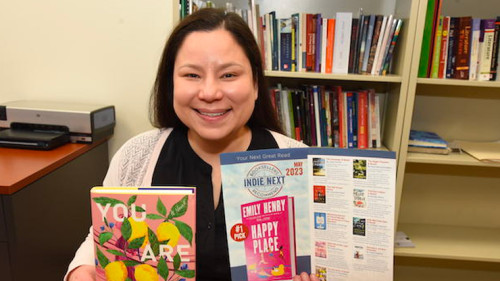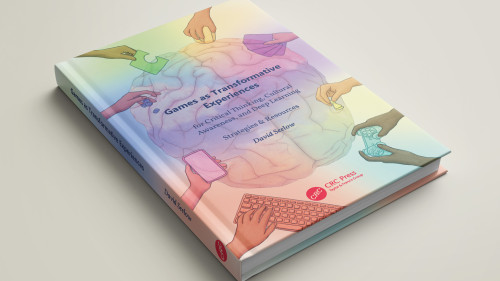
Revisiting a centuries-old cold case involving the death of a famous Mayflower passenger has netted a major essay prize for an English faculty member.
Stacey Dearing, Ph.D., teaching assistant professor of English, is the winner of the 2021 Richard Beale Davis prize for her essay “Remembering Dorothy May Bradford’s Death and Reframing ‘Depression’ in Colonial New England.” It revisits the death of Bradford (the wife of William Bradford), who drowned on Cape Cod after falling off the anchored Mayflower in December 1620.
Dearing’s essay was recently published in the prestigious Early American Literature, the official journal of the Society of Early Americanists and the Modern Language Association's (MLA) Division on American Literature to 1830.
“Though the committee read many distinguished essays, Dearing’s work stood out for its innovative research and capacious rethinking of the possibilities of colonial scholarship,” read the award letter from the publisher. “The essay is a marvelous reconstruction of how historiographic traditions are shaped by deep-seated assumptions about gender and mental health.”
The death of Bradford, who was in her early 20s, sometimes appears as an historical footnote to the founding myth of Pilgrims landing at Plymouth Rock. However, conjecture about her death has become its own subject of historical research over centuries. Was it simply an accident? Or, was Bradford depressed about the long ocean voyage into the unknown, frightened about what life in this new land would bring, and deliberately leapt overboard to her death?
Dearing’s analysis shows that Bradford’s death and mental state – and the centuries of scholarship about it – have always been an important topic in their own right, and that our understanding of Puritan history has been shaped as much by narratives about women’s mental health as by stories of colonial founding.
“Research about Bradford’s death tells us much more about the evolving views on women’s mental health than it does about the experience of one individual or the group of pilgrims,” she said. “We have no evidence that she took her own life or even experienced suicidal ideation, but that myth has grown, and the reasons for it change about every 30 years. It tells us more about the storytellers and their historical context than it does about Dorothy Bradford and hers.”
The essay is the first published piece from Dearing’s book project that will delve deeply into Bradford’s life: her personal background and the decision to join the pilgrims leaving England on the Mayflower; her drowning near what is now Provincetown; and the taxonomy of Bradford stories that arose in the ensuing years.
“It’s OK to admit we don’t know precisely why she died,” Dearing said. “My article encourages readers to see historical figures as complex people, and that reasons why things happen are not always simple and straightforward. History can be messy, and fascinating, and we need to learn how to deal with not knowing the precise truth about something or someone.”
Christiane Farnan, Ph.D., dean of liberal arts, said Dearing’s receipt of the Beale prize identifies her “as a leading Early American scholar whose innovative and cutting-edge research significantly impacts the field.
“Her article offers a fresh examination of the ways in which Dorothy Bradford's death has been represented across centuries of literary and historical scholarship and popular culture, and in doing so, reveals gendered assumptions regarding our collective understanding of the founding of colonial America and women's mental health,” said Farnan. “Dr. Dearing’s American literature students deeply benefit from her excellent modeling of new ways to analyze and interpret the past.”
Dearing will formally accept her award at the Society’s annual conference this June in Washington, D.C.

